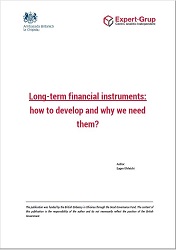Long-term financial instruments: how to develop and why we need them?
Long-term financial instruments: how to develop and why we need them?
Author(s): Eugen Ghilețchi
Subject(s): Economy, Financial Markets
Published by: EXPERT-GRUP Centrul Analitic Independent
Keywords: Moldova Banking Sector;
Summary/Abstract: Moldova, like other developing countries, faces a relatively short maturity of financial instruments. The average weighted maturity of state securities in circulation is only 6.5 months. The average weighted maturity of the portfolio of new loans granted throughout the banking sector in 2016 made up 29 months, while the average duration of loans granted to legal entities in developed countries is 58 months. Meanwhile, about 92% of the total new deposits attracted by local banks in 2016 have a term of up to 1 year. Thus, economy of the country is constrained by the lack of long-term credit instruments that would otherwise enable efficient long-term investments: real estate projects, infrastructure projects, etc. // The problem of maturity of financial instruments has two aspects: lack of the supply of instruments with long-term maturity and low demand from the population for such instruments. A basic precondition without which it is impossible to extend the maturity of financing is to ensure stable macroeconomic conditions.
Series: Documente de Politici (Economie, Bancar, Finanțe publice)
- Page Count: 9
- Publication Year: 2017
- Language: English
- Content File-PDF

